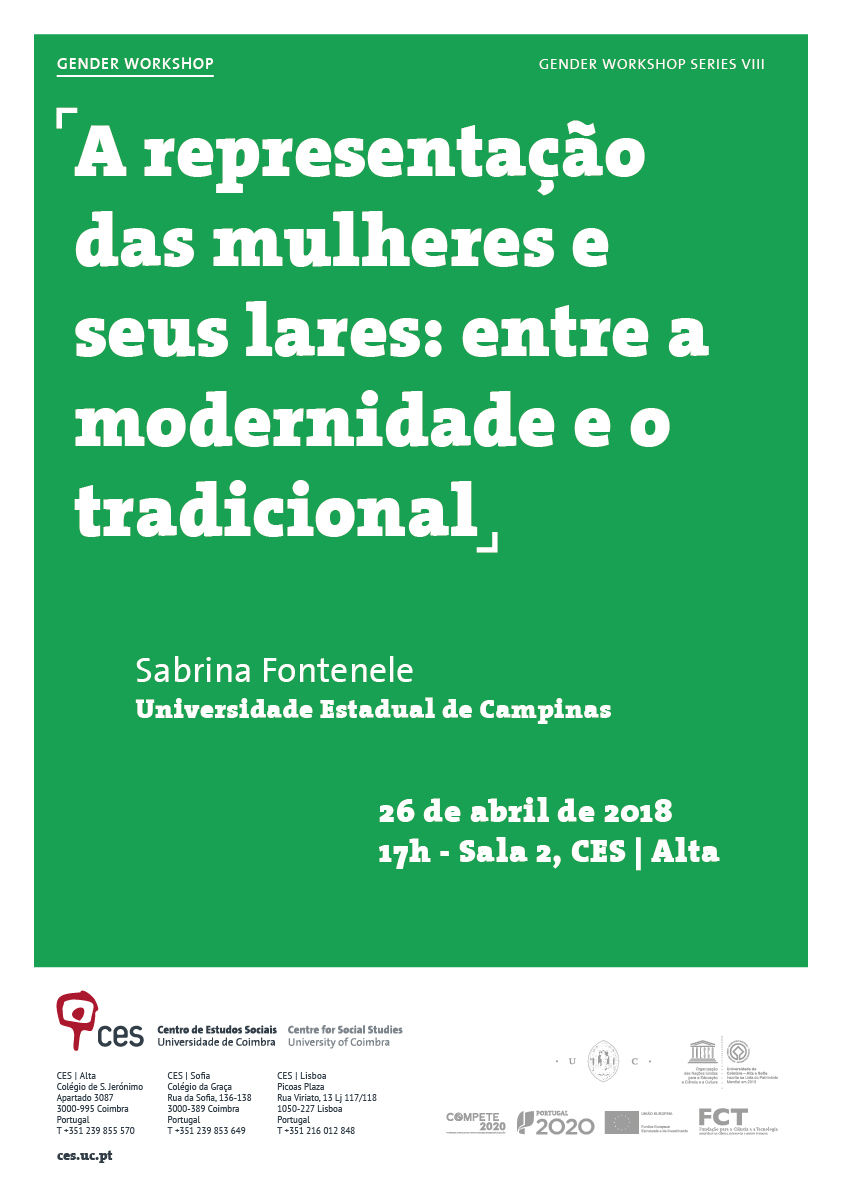Gender workshop
The representation of women and their homes: between modernity and traditional
Sabrina Fontenele (Universidade Estadual de Campinas)
April 26, 2018, 17h00
Room 2, CES | Alta
Overview
The study of modern architecture, its relationship with everyday life and with gender issues has stimulated research that seeks new sources of study and broadens the analysis of its ideas and achievements. This proposal analyses the production of modern architecture and its relationship with daily life from the study of duplex apartments in the multifunctional buildings built in the metropolis. The spatial arrangements of this typology were originally related to the idea of economy in construction and to the discourse of space functionality that suggested new domestic practices taking into account the entry of women into the labour market, as well as their participation in the organisation of the home and of the family. The familiar dynamics in these spaces can be understood from photographs, drawings and representations of the users and their daily life. A survey of the most emblematic examples of modern multifunctional ensembles reveals that women were the main figures represented in their domestic spaces, now taking on the role of symbols of the innovations of lifestyles, now presented as traditional images: taking care of domestic tasks and their body. This proposal was born from the attempt to develop a closer look at the roles they assumed or represented in these proposed spaces, assuming them be it as symbols of the innovation of ways of life, be it as a possible representation of the traditional family. These conservative images try to convince investors and residents that the proposed functional spaces designed by modern architects is possible for any user profile. In other words, any family can live well in a bold modern building. The paper intends to centre the debate on Brazilian experiences, but should also reflect on the differences and similarities with other international experiences in order to better understand the idea of modern living, domestic practices and representation of the female figure in modern buildings between the decades of 1930 to 1960.
Bio note
Sabrina Fontenele Costa - MA and PhD from the Faculty of Architecture and Urbanism of the University of São Paulo (FAU-USP). Architect and urbanist from the Federal University of Ceará. Post-doctoral researcher at the State University of Campinas (IFCH-Unicamp) where she studies issues such as domesticity, gender, preservation and modern architecture financed by Fapesp (Foundation for Research Support of the State of São Paulo) with the research project "Modos de morar nas métropoles: domesticidade, preservação e memória nos apartamentos duplex modernos em São Paulo” [Modes of living in the métropoles: domesticity, preservation and memory in the modern duplex apartments in São Paulo]. She has experience in Architecture and Urbanism, with emphasis on History of Architecture and Urbanism, working mainly on the following topics: modern domesticity, history of architecture, historical heritage, restoration, architecture and restoration. Employee at the Centre for Cultural Preservation of USP. Author of the book "Edifícios modernos e o traçado urbano no Centro de São Paulo” [Modern buildings and the urban layout in the centre of São Paulo] (Annablume, 2015)
Recomended Readings:
Fontenele, Sabrina (2017), “Modos de morar na metrópole: a representação das mulheres e da domesticidade nos apartamentos modernos duplex”, presented at Fazendo Gênero 11 & 13th Women’s Worlds Congress, Santa Catarina, Florianópolis, 30 July to 4 August. [LER]
Fontenele, Sabrina (2017), “A casa de vidro e sua moradora invisível”, Vitruvius, Ano 17, set. 2017. [READ]
[Texts in open-access online]


